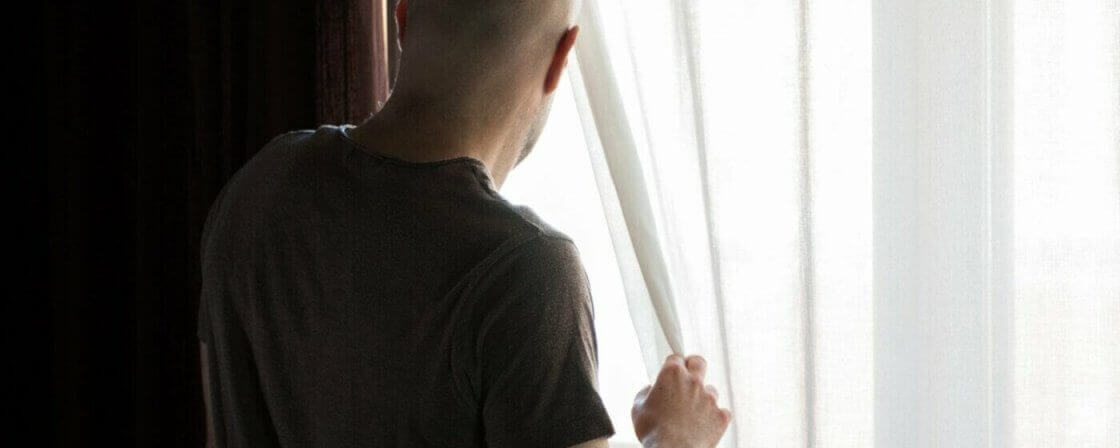Introduction of house arrest in the Czech Republic
In the modern history of criminal justice, we have known about the punishment of house arrest since 2010, but it was also part of our law, for example, during the First Republic, and we have also encountered the analogy of house arrest in earlier history. Let us think, for example, of Karel Havlíček Borovský, who served his sentence in exile in Brixen, but all the other attributes of house arrest were retained. In fact, house arrest was part of the law on crimes, misdemeanours and offences in our territory as early as 1852. Today, therefore, house arrest is no longer imposed not for the written truth but for the actual commission of the offences described in the Criminal Code. It is one of the alternative punishments, the main idea of which is to keep the convicted person at liberty and to impose on him the kind of obligation or restriction that will have a rather preventive effect on him and at the same time sufficiently protect society. The institution of house arrest is also known, established and widely used in the countries of Western Europe.
According to research, house arrest has a positive effect, especially when offenders come from a stable social environment and have the support of their family. To this end, prior to the imposition of the sentence itself, preliminary investigations are usually carried out to examine the offender’s current housing and social circumstances and other circumstances which have or could have a significant impact on the execution of the sentence itself. The purpose is not to be an alternative to a suspended sentence, but indeed to an unconditional sentence. Among other things, the aim is to reduce prison occupancy, and reducing the costs associated with sentencing is another positive effect.
Despite the fact that staying in one’s own home might seem to some to be too light a punishment, or almost no punishment at all, in the Penal Code we find it ranked just behind imprisonment, which means that it is considered the second most severe punishment in terms of interference with the rights and freedoms of the convicted person.
Are you solving a similar problem?
Have you been charged and prosecuted?
I want to help
- When you order, you know what you will get and how much it will cost.
- We handle everything online or in person at one of our 6 offices.
- We handle 8 out of 10 requests within 2 working days.
- We have specialists for every field of law.
Conditions for imposing a sentence of house arrest
According to the Criminal Code, a sentence of house arrest may be imposed on an offender if
- in view of the nature and gravity of the offence committed and the person and circumstances of the offender, it may reasonably be considered that the imposition of such a penalty is sufficient, and
- the offender gives a written promise to stay at the dwelling at the specified address during the specified period and to give all necessary assistance in the execution of the control.
The penalty may be imposed for up to 2 years.
The law previously allowed, in the case of an unconditional prison sentence for an offence, to convert it into a sentence of house arrest after half of the sentence has been served. However, this option was recently abolished by an amendment to the Criminal Code.
Under certain conditions, the remainder of the sentence may also be waived after a court decision. This may be due, for example, to the offender’s incurable illness, where it would make little sense to continue serving the sentence.
House arrest and juveniles
A number of exceptions and special provisions generally apply to the sentencing of juveniles and offenders close to the age of juveniles. However, the penalty of house arrest can also be imposed on juveniles and persons slightly over 18 years of age. Conversely, the imposition of this penalty is considered a highly recommended alternative in cases where a custodial sentence is imminent, since, on the one hand, these offenders often still have the necessary family background and, on the other hand, the imposition of a custodial sentence is often more likely to lead to inappropriate influences and contacts. The only difference is the upper limit of the sentence of house arrest, which is 1 year in the case of juvenile offenders.
Execution of a sentence of house arrest
Serving a house arrest sentence does not mean that the prisoner never leaves his or her home and is there 24 hours a day. On the contrary. He or she must be allowed to go to work or school, to see a doctor and, if necessary, to carry out other activities that the court allows him or her to do (care for children, perform other family duties, attend religious services, etc.).
Outside of these activities, the prisoner should stay in his home, which means that he is forbidden, in particular, to engage in normal leisure activities (going to the cinema, sports activities, restaurants, parties with friends, etc.).
The penalty of house arrest may be imposed as a stand-alone sentence or may be supplemented by other sanctions. It is, however, by its nature incompatible with imprisonment and community service. Together with the restriction of the offender’s freedom of movement, the court may impose other restrictions or obligations on the offender which will also encourage him to lead a proper life. This includes, in particular, a possible obligation to abstain from the consumption of alcoholic beverages or other addictive substances, which is quite logical in the case of a restriction of liberty.
House arrest and bracelets
One of the first questions from the public about house arrest relates to its enforcement and possible control. You may be familiar from the setting of some American films with the bracelets that the convict wears on his or her arm or leg. Recently, 100 gram ankle bracelets have also been a reality for Czech prisoners under house arrest. The bracelet combines technology that uses radio waves to locate the person being monitored in their home and GPS technology that is designed to locate the person in open space. The special technology will also allow for the recording of an attempt to remove the bracelet.
In general, the use of electronic monitoring promises permanent and significantly more effective control than the random protection of probation officers, as well as significant savings over traditional jail. Just for comparison: one day in prison costs the taxpayer CZK 1,500, while home detention secured by electronic monitoring costs only around CZK 230. However, the system introduced after several unsuccessful tenders in 2018 was accompanied by a number of complications. In the end, it worked for only three years, after which the company supplying the bracelets withdrew from the contract with the state, and so electronic monitoring of convicts is sadly lacking at present.
In the current state of affairs, therefore, the control of convicts is carried out by an official of the Probation and Mediation Service in the form of random checks at times when the convict should be at home (for example, in the evening or at the weekend). The convicted person must allow him/her to enter the house. If the convicted person is found in breach of his/her sentence, the probation officer reports everything to the court, which assesses whether the breach is so serious that it should be converted into an unconditional prison sentence. Probation officers should not confine themselves to controlling convicts, but are expected to work actively with them and guide them towards correction.
Tip for article
We have dealt withimprisonment, its conditions and alternatives in our separate article.
Summary
House arrest has been an alternative punishment in the Czech Republic since 2010, although its roots date back to the 19th century. It allows the offender to remain at liberty with an obligation to stay in a designated dwelling for up to two years (maximum one year for juveniles). It is imposed for minor offences if the offender consents and has a stable background. The aim is prevention, protection of society and cost savings compared to conventional prison.
The inmate may only leave home for work, school, medical or other court-approved activities. The court may impose other restrictions, such as a ban on alcohol. Electronic wristbands were previously used, but the system ceased to exist when the contract ended in 2021. Today, sentences are checked by probation officers through random visits. Breaking the rules can lead to a change to an unconditional prison sentence.




